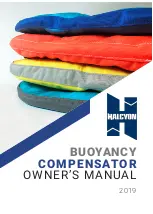
Commissioning fresh concrete measurement
Solitrend MMP20 (Option D)
36
Hauser
The SWZ probe also measures additives that behave like water during the measurement
process. This must also be taken into consideration when evaluating and determining the
w/c water content.
Applicable value for the core water for the calculation when kiln-drying:
If a very absorbent lime grit absorbs 2 % water, for example, this would be 34 l of core
water with one cubic meter aggregate fraction, presuming a bulk density of the aggregates
of 1
700 kg/m
3
(3
748 lb/ft
3
). Core water = moisture * raw density of rock /100 = 2 % ×
1700 / 100 = 34 l/m³ water absorption (WA24)
Applicable value for the G-Set in the handheld device:
As the SWZ probe cannot measure 100 % of the core water, in this example a G-Set value
of approx. –23 l/m³ could be suitable (= 2/3 of total core water of 34 l) if the effective
water content or effective water is to be measured with the SWZ probe. The G-Set value
which has been determined or assumed for the rock type or location should be determined
or checked by performing comparison measurements either with reliable mixes with dry
aggregates or with several reliable kiln-dried values.
9.3
Kiln-drying as a reference value
The G-Set parameter, which can be configured in the device, can be used to adapt the
calibration of the SWZ probe to the concrete formulation with the rock type by performing
kiln-dried comparison measurements. It is important to note, however, that it is not easy
to kiln-dry fresh concrete correctly. Fresh concrete must be kiln-dried relatively quickly to
prevent the cement from gradually setting during the kiln-drying process. If the kiln-
drying process is too slow there is the danger of the free water in the fresh concrete
binding in the cement. This would falsify the measurement result when the sample is
weighed because the water in the kiln would be chemically or crystalline-bound and the
calculated kiln-dry water content would be too low as a result.
Potential problems or influencing factors when kiln-drying:
• When kiln-drying with a gas burner (blowtorch), make sure that no solid particles
escape into the air (or from the kiln vessel!) as the loss of weight would mean that the
water content values determined would be too high. Some users stir the fresh concrete
when kiln-drying, while others do not. This results in different kiln-dried values. If the
fresh concrete is not stirred, there is the danger that the water would be chemically
bound in the concrete due to the longer drying time. Such water cannot escape even at
very high temperatures. The measured water content is generally higher when the
concrete is stirred vigorously than when it is not stirred, as too many solid particles can
escape to the air due to the stirring action.
• When drying with a microwave oven, it is important to select the drying time depending
on the power (800 W or 1
000 W), and also pay attention to the volume of the kiln-
dried sample (e.g. 1.5 to 2 kg). With the same fresh concrete sample, deviations of up to
±3 to 10 l/m³ are not unusual when drying with gas burners or microwave ovens. The
information sheet published by the German Society for Concrete and Construction
Technology (DBV) entitled "Special Fresh Concrete Checks" deals specifically with kiln-
drying procedures with microwave ovens. Note that the water can be chemically bound
in the concrete with drying times >20 min. This can falsify the result as the water
content would then be too low. If the sampling volumes in the microwave are too large,
there is also the danger of the chemical binding of water, which would cause the reading
for the measured water content to be too low.
• When taking concrete samples for kiln drying, considerable deviations can occur. If the
concrete has been left in the bucket for quite a while, it may segregate, with the result
that the water content of kiln-dried samples of concrete taken at the surface would be
far too high. This is particularly true of concrete with flow class F5 and F6.
Summary of Contents for Solitrend MMP20
Page 55: ......
















































